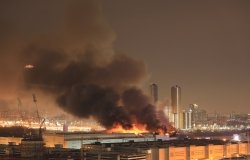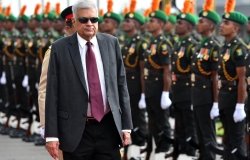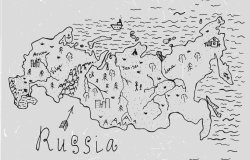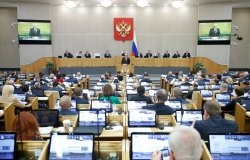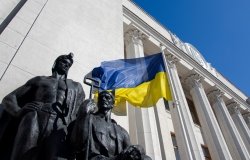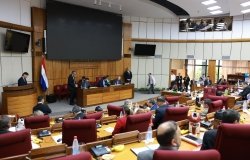An Assessment of Ahmadinejad's Trip to the U.S.
Robin Wright, Joint Fellow, Woodrow Wilson Center and United States Institute of Peace; John Limbert, Distinguished Professor of International Affairs, United States Naval Academy and former Deputy Assistant Secretary for Iran in State Department's Bureau of Near Eastern Affairs
Overview
Iranian president Mahmoud Ahmadinejad's visit to the United Nations General Assembly in New York in late September coincided with the customary precipitous rise in media attention–on the Iranian leader, his country's strained relationship with America, and on Iran's nuclear program. During his stay, Ahmadinejad hosted a breakfast with journalists and a dinner with scholars and members of think tanks, in which Ahmadinejad entertained questions from these groups. Journalist Robin Wright and Professor John Limbert both attended the meetings and concluded that Ahmadinejad evinced a false confidence in the Islamic Republic's domestic and global situations, and despite more conciliatory rhetoric he remains defiant, content with his country remaining at odds with the United States and its allies.
On October 8, 2010 the Middle East Program hosted a discussion entitled, "An Assessment of Ahmadinejad's Trip to the U.S.," with Wright, USIP-Wilson Center Distinguished Scholar, and Limbert, Distinguished Professor of International Affairs at the United States Naval Academy and former Deputy Assistant Secretary in the State Department's Bureau of Near Eastern Affairs. Haleh Esfandiari, Director of the Middle East Program at the Woodrow Wilson Center, moderated the event.
Wright described President Ahmadinejad as "confident" and "unflappable." He claimed that the Tehran stock market was healthy and one of the world's "most active" and that Iran was always prepared for dialogue with the international community. Wright also said Ahmadinejad was "undaunted," for he dismissed the possibility of a military confrontation with the United States and Israel and played down the negative effect of economic sanctions imposed on his country's economy. Despite his outward confidence, Wright ultimately found him "unconvincing." She contended that the Iranian regime's position was more "vulnerable" than the President let on, saying that continued isolation, the sanctions regime, impending subsidies cuts, and labor movement unrest were all problems that challenged Ahmadinejad's presentation of Iran as tumult-free and prosperous.
Limbert analyzed Ahmadinejad's handling of the media during his annual trips to the U.N. He first drew attention to the scope and regularity of the President's interactions with the press each time he visits New York, observing that Ahmadinejad clearly enjoys the attention his visits garner and conversing with his interlocutors. He also remarked that Ahmadinejad is experienced and "knows his lines" well. He can be counted on to give stock answers to a number of questions on key issues. Focusing on the Iranian leader's latest visit,  Limbert said that his manner was different from previous appearances: he was friendly and soft-spoken; his Persian was clear, direct, and respectful; and he openly talked of engagement with the United States and the wider international community. Like Wright, Limbert was very skeptical of Ahmadinejad's sincerity and tended to view his "new" manner as a façade. Occasionally, the "old" Ahmadinejad would peek out from behind and raise a defiant voice, saying, for example, that the world needed to be run differently or that the United States may not dictate terms of engagement to Iran.
Limbert said that his manner was different from previous appearances: he was friendly and soft-spoken; his Persian was clear, direct, and respectful; and he openly talked of engagement with the United States and the wider international community. Like Wright, Limbert was very skeptical of Ahmadinejad's sincerity and tended to view his "new" manner as a façade. Occasionally, the "old" Ahmadinejad would peek out from behind and raise a defiant voice, saying, for example, that the world needed to be run differently or that the United States may not dictate terms of engagement to Iran.
By Luke Hagberg, Middle East Program
Haleh Esfandiari, Middle East Program
Documents & Downloads
Hosted By

Middle East Program
The Wilson Center’s Middle East Program serves as a crucial resource for the policymaking community and beyond, providing analyses and research that helps inform US foreign policymaking, stimulates public debate, and expands knowledge about issues in the wider Middle East and North Africa (MENA) region. Read more
Thank you for your interest in this event. Please send any feedback or questions to our Events staff.
